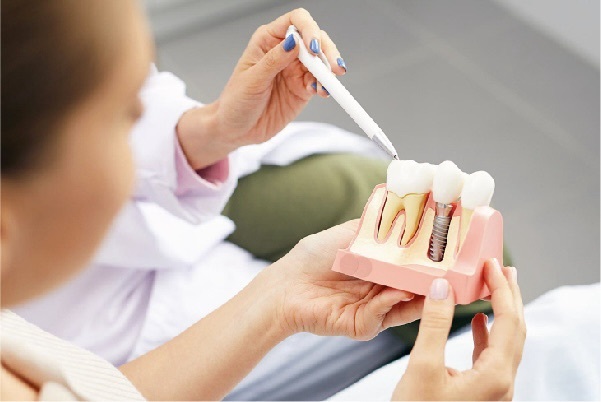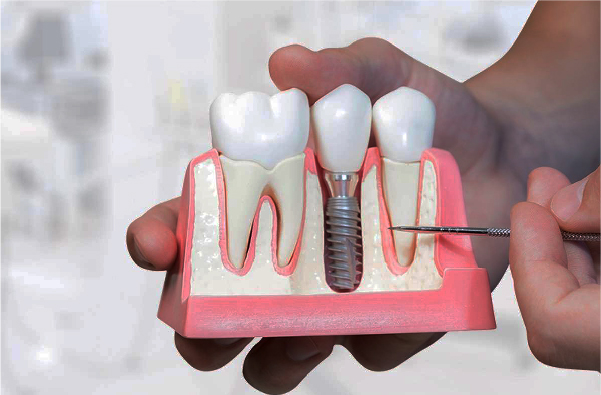Recovery After Implantation

Let's start by understanding what dental implantation is. It is a procedure where a tooth implant is placed into the jawbone to replace a damaged or missing tooth. As for the question of what a tooth implant is, we can say that it is an innovative dental procedure involving the placement of an artificial tooth root. This root serves for the attachment of a dental crown or bridge, restoring the natural appearance and function of the tooth. Now, let's discuss the stages of implantation for the best dental implant system: At Mary Clinic in Yerevan, our doctors will evaluate the condition of Your teeth and jawbone, discuss the treatment plan, and answer all of Your questions. If necessary, preliminary treatments such as extraction of damaged teeth are performed. The doctor inserts the tooth implant into the jawbone. This may require a minor surgical procedure. The jawbone needs time to heal around the implant. This period can last for several months. After healing, the doctor attaches the dental prosthesis to the implant, restoring the natural appearance and function of the tooth. Regular visits to the dentist and supportive procedures are important for the long-term success of the implantation. In Yerevan, tooth implants are highly popular and people from all over the world come to Armenia to fulfill their dream of having the best dental implants with no worries and at a favorable price. Postoperative indications for dental implantation include the following: Observing proper oral hygiene: It is important to maintain cleanliness of the wound and regularly rinse the mouth using recommended care products. The doctor may prescribe medications to reduce inflammation and pain, such as antibiotics and anti-inflammatory agents. Harmful habits such as smoking, alcohol consumption, and others should be minimized, and if possible, completely avoided. It is important to avoid chewing food in the implantation area and minimize stress on the new tooth during the first few weeks after the surgery. It is recommended to avoid hard and sharp foods to prevent injury to the wound. The patient should follow all recommendations and instructions provided by the doctor, visiting regularly to ensure successful healing and integration of the implant. However, the decision of whether dental implantation is suitable in a specific case should be made by a dentist based on a comprehensive assessment of the patient's health condition. People often require dental implants for various reasons, including tooth loss due to trauma, decay, or periodontitis. Our dentists ensure that the best dental implants can help restore self-confidence, normalize chewing functions, prevent teeth from moving, and maintain the health of gums and jawbones. Furthermore, our dental clinic implants are emphasized as a long-term solution that provide stability and functionality while preserving a natural appearance and sensation. Through this procedure, You can live without restrictions in diet or social activities. Together with our doctors, You will achieve success while saving Your time and money. Best wishes from Mary Clinic team.Assessment and Consultation
Preparatory Work
Surgical Stage
Healing Period
Prosthesis Installation
Follow-up Care
Postoperative indications
Abstaining from harmful habits
Regular visits to the implantologist
Contraindications for dental implantation
Significance of implantation







